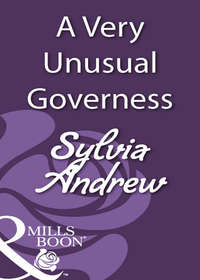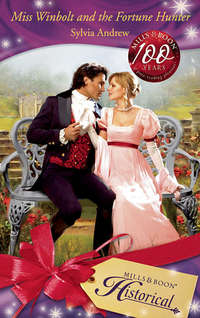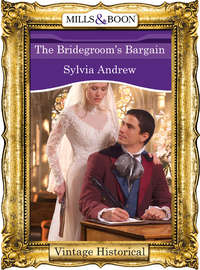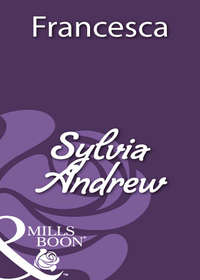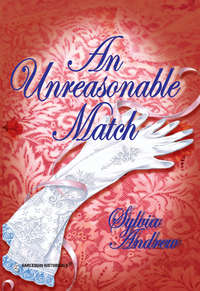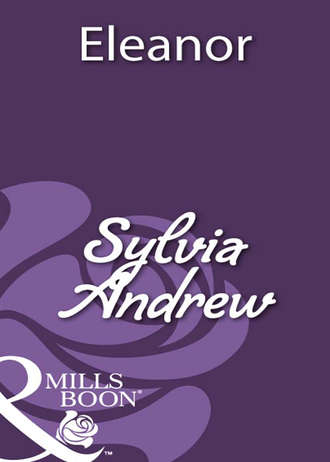
Полная версия
Eleanor
Eleanor felt a sudden flicker of hope.
‘Do you…do you deny the truth of what she said?’
He hesitated for a moment, then he drawled, ‘Since I wasn’t there, how can I possibly know what she said? She may well have been right. In any case, ma’am, why on earth should I deny anything? What business is it of yours, I should like to know?’
Eleanor was so incensed that she almost ran towards John, requesting him to help her to mount. Then she rode off without waiting to hear any more.
Eleanor went on fuming about Mr Guthrie throughout that last day in London—when she wasn’t puzzling over the curious circumstances of the morning’s meeting. In spite of everything, she still found it very difficult to reconcile the black-hearted villain of Mrs Anstey’s tale with the man she had met. Her feelings were so confused that she was heartily glad to be leaving for Somerset the next day. She told herself she would forget everything to do with him once she was back at Stanyards.
On the day of her departure the whole household, including her aunt, rose early to see her off. She was fortunate enough to be able to travel with some friends of Bella’s new husband, who lived near Lyme Regis, and who had hired a post-chaise. When they appeared in South Audley Street, Eleanor thanked her uncle, embraced her aunt warmly and prepared to climb into the carriage. Her aunt held her sleeve.
‘I have done my best to change you into a conformable young lady, Eleanor, but I cannot pride myself on my success.’
‘And I, for one, am glad of it,’ said her uncle, embracing his niece.
‘Well, there have been times when I could have shaken you for your behaviour—but we shall miss you. Life is never dull when you are there,’ said Lady Walcot, smiling at her niece. ‘Remember! When the time comes, you have only to say the word and I shall still spare no effort to find you a suitable husband!’
‘Thank you, darling Aunt Hetty! But I’m afraid the task would be too difficult, even for you! Besides, there’s too much to do at Stanyards! Come down and see us when you grow tired of the season. I shall miss you both! Goodbye!’
The chaise rolled off, and Eleanor waved until they turned the corner and the Walcots were lost to sight.
The journey passed pleasantly enough—the roads were dry and the weather favourable. But by the end of the second day she was heartily glad to stretch her legs at the posting house in Axminster, say goodbye to her kind friends, and join the carriage from Stanyards which would take her the rest of the way. Within an hour she was at the beginning of the long avenue of chestnuts which led to the house. She was home!
As soon as the carriage drew up at the door, Eleanor jumped out, ran up the low flight of steps and clasped her mother in her arms. After a rapturous greeting, Eleanor stood back and surveyed her. ‘I ought to scold you for standing in the evening air,’ she said. ‘Why didn’t you stay inside?’
‘Daniel saw the carriage and told us you were coming. I couldn’t wait to see you, Nell—and anyway I’m feeling very well at the moment, so you needn’t scold me at all! Oh, it’s delightful to have you home again! Cousin Louisa has been very kind, but I’ve missed you a great deal. Come in, come in!’
Eleanor followed her mother across the huge, stone-flagged hall into a room which opened off to the side. Here the low ceilings, ingle-nooks and casement windows set in thick walls proclaimed the great age of the house. But the log fire in the handsome fireplace and the books and tapestries around the walls gave it an air of warmth and comfort.
‘I hope you don’t die of a heatstroke, Nell. Cousin Louisa insisted on the fire.’
‘Your mother hasn’t enough flesh on her bones to keep her warm even on the hottest day of summer! And this room never really gets the chill off it, you know that. I am glad to see you, Eleanor. How was your journey? No, don’t start talking before you have some food in you; I dare swear you have had nothing sensible for the past month. I’ve told Betty to bring a tray and we’ll put it on the table by the window—the dining-room is far too damp unless you have a fire there, too, which would be wickedly extravagant.
‘Anthea, I’ve drawn your sofa nearer the fire. It was foolish of you to stand outside in the night air for so long. Eleanor could well have waited another two minutes to see you; you look quite chilled. I’ll ask Betty to bring you something warm, too—Drat the woman, you may wait till Domesday for what you want. I’ll just see what she is doing.’ Cousin Louisa went bustling out. Her cry of, ‘Betty!’ echoed through the hall as she went.
‘She means well,’ said Mrs Southeran with a wry smile.
‘I know she does. Has it been very hard?’
‘Not at all. But tell me about the journey, and when Cousin Louisa returns you can tell us both about Hetty and Bella and the wedding. Did you like the Wyndhams? It’s a long journey to be cooped up with strangers.’
They spent the rest of the evening exchanging news and gossip. Candles were necessary quite soon, for daylight always faded early in the house, even in summer, and the three ladies sat cosily in the soft light till the tea-tray was brought in. But in all her descriptions of her life in London Eleanor never once mentioned the name of Guthrie.
The following day Eleanor woke early, and wondered for the moment where she was. There was a totally different quality to the air, and in the distance she could hear sounds of the country. She was home! She rose quickly, and quietly took herself out into the early morning sunshine. She had forgotten how lovely Stan-yards was. For the next half-hour she wandered over the familiar paths and fields round her home, finding herself at length at the end of the chestnut drive.
‘Good marnin’, Miss Nell!’ It was Daniel driving the cart up from the village. ‘Would ’un like a lift up to the house?’
‘No, thank you, Daniel—I’m enjoying the walk. The chestnuts look magnificent this year!’
‘You be careful of ’un, Miss Nell! There’s a good few as needs chopping down, I reckon. You have a look at the branch that’s lyin’ up by the bend. Nearly got old Betty last week, ’un did. Had to skip a bit, did Bet!’ He grinned, showing blackened teeth, and drove on.
Eleanor refused to be daunted. The trees were said to be over a hundred years old—it was natural that they should be feeling their age. But they were beautiful. The early morning breeze caused the leaves to whisper and flutter in the summer air, now revealing tiny glimpses of a pale blue sky or the slanting rays of the morning sun, now closing over her head like a heavy canopy. It had always been airless in the city. Here at Stanyards it was cool and fresh. She felt a sudden uplift of spirits as she realised she really was home! Stanyards was where she wanted to stay for the rest of her life, and if the choice was to be between this house and a husband, then Stanyards was what she would choose. Her aunt was wrong to pity her, for she was a fortunate woman.
But as she reached the bend in the drive she stopped and stared. How could she have missed this last night? A huge branch was leaning drunkenly between two of the trees, just off the drive, its leaves drooping and a great jagged, bleached wound at one end. There were signs that the branch had been dragged a few feet, presumably to keep the drive clear. It was an unwelcome reminder that time was taking its toll of her beloved avenue of trees. Daniel was right—some of them at least would soon have to be chopped down.
She stood staring at the branch for some minutes, her happiness at being home again slowly seeping away, tempered by a small shadow of uncertainty. Stanyards was in desperate need of repair and restoration. It wasn’t just the drive—the whole estate needed attention. For a black moment she began to doubt her own strength and determination. For years she had done what she could, jiggling account books, robbing Peter to pay Paul, trying to be in three different places every hour of the working day, but suddenly she was terribly afraid that she was slowly but inexorably losing the battle.
What nonsense! she chided herself. It only needed a little more patience, a touch more perseverance and energy. She was still tired after her long journey, but she would soon find the necessary energy and hope. Things would be better this year, she was sure. She threw back her shoulders and marched on up the drive.
In the afternoon Cousin Louisa returned to her own home, in the next village, and after she had gone Mrs Southeran told Eleanor several times how kind, how good, how very helpful Cousin Louisa had been.
‘I’m sure she was, Mama—but why are you protesting so much? I already know how worthy Cousin Louisa is!’
‘That’s it! She’s worthy! Oh, Nell, I have been so bored! And I haven’t written a line since you left!’
‘Now that is serious. Well, I am back now and you must start immediately—where are your things? I’ll fetch them and you shall not leave your sofa until you have written at least ten lines! I shall be neither good nor kind until you comply!’
Mrs Southeran was a poet with quite a reputation in the West Country, and even beyond. She wrote under a pseudonym and few of her neighbours knew of her talent, but writing was as necessary to her as breathing. The news that she had been neglecting it was worrying.
‘Don’t be too concerned, Nell. It wasn’t just because of Cousin Louisa or your absence. I’ve been doing some serious thinking and have even taken some action. Sit down, my dear. Now that we are alone again, I want to tell you something.’
Her mother’s voice was so earnest that Eleanor’s heart missed a beat. Had the doctor been making gloomier prognostications again? ‘I knew I shouldn’t have left you! You’re feeling worse?’
‘It isn’t my health, it’s you! I’ve been worried over you for some time now, and while you’ve been away I’ve decided that we must do something about it. Running this house and estate is sapping all your energy…all your youth. Your life is taken up with worry and work and little else—’
‘Mama! I have just spent four weeks doing little else but enjoying myself!’
‘And when was the last time you left Stanyards before that? Or went to a ball or a party? Wore pretty dresses? You have forgotten, and so have I. Well, it must not continue—and I have taken steps to see that it does not.’
‘But I am quite happy living here and running Stan-yards! I don’t want to change anything—except perhaps to see you in better health again!’
‘Stanyards is destroying your youth and looks, Eleanor, and it is taking away my health. I know, I know what you are about to say! Stanyards has been in the Southeran family for four hundred years or more, and is steeped in tradition and history. But Tom’s death—’ Mrs Southeran’s voice faltered.
‘Don’t, Mama! Don’t talk about it! It will make you ill.’
‘I must! I have refused to face the consequences for far too long! When Tom was killed, Nell, the family name died out. You are not a man, however much you have played the man’s part since Tom died.’
‘And before,’ muttered Eleanor.
‘Yes, and before. It was a matter of regret to all of us that your brother never had your interest in Stanyards.’ Mrs Southeran paused again, but this time Eleanor made no effort to speak. How could she say anything, when her feelings were so hopelessly tangled? Even after seven years she still felt love and grief for her handsome, laughing brother, was still angry at the recklessness which had caused his death and still resentful that he had cared so little for his heritage. Tom had only ever taken, never given.
Mrs Southeran looked at Eleanor’s stormy face and sighed. But then she continued in a more determined voice, ‘When you marry, or die, there will be no more Southerans of Stanyards.’
‘What are you trying to say, Mama?’
‘Not even you can claim that this house is comfortable to live in. Not in its present state. It is old, dark and damp. And we don’t have the resources to change it. I have done what I must.’
Eleanor’s throat was dry. She said in a strained voice, ‘Mama, what have you done?’
Mrs Southeran looked at her with pity in her eyes. ‘You will not like it, Nell, but it was for us both. I seized an opportunity which came out of the blue, and I cannot be sorry. I have sold Stanyards.’
For a moment Eleanor sat in stunned silence. Then she whispered, ‘No, no! It’s not true!’ She threw herself down by her mother’s sofa and her breath caught on a sob as she pleaded, ‘Tell me it’s not true, Mama! You can’t have s-sold it!’
Mrs Southeran’s face was troubled as she gazed at her daughter. But she said steadily, ‘It is true, Eleanor. In two weeks Stanyards will have a new owner.’
‘How could you? How could you, Mama? You must cancel the sale at once!’
‘I did it for us both, Nell,’ repeated Mrs Southeran. ‘And I will not change my mind.’
Eleanor got up. Without looking at her mother she said, ‘I feel…I feel sick, Mama. Excuse me, please.’ She ran out of the room.
Chapter Four
Eleanor could never afterwards remember what she did for most of that day. For the first time in many years she had no thought for her mother, nor for the duties which needed her attention. She wandered through fields and woods, over stiles and ditches, unseeing and deaf. It was a miracle that she ended the day unscathed. She finally came to herself on the top of the hill which overlooked Stanyards, and stood there for a long time staring down at her home. At one point she imagined she might take hold of it, and she stretched out towards it, but then she let her arms drop hopelessly to her sides. Stanyards was lost, and she felt as if a stone had settled on her heart. She stood there for a little while longer and then stirred and turned away. Old habits reasserted themselves—she must go back—her mother would be worried about her. Slowly she set off down the hill.
But Eleanor could not bring herself to talk about the coming move, and spent a great deal of the next day going about her ordinary duties in silence. Finally her mother sought her out and took her firmly to task.
‘We have much to do, and I cannot do it alone, Eleanor. I know you feel strongly—’
‘You are wrong, Mama. I do not feel anything.’
‘What nonsense!’ Mrs Southeran looked at her daughter’s wan cheeks and heavy eyes and said more gently, ‘You have suffered a great shock, I know that. But do you think it is easy for me to leave my home?’
‘I would not have thought so.’
‘Eleanor, my dear, you must know in your heart that we could not have continued as we were!’ Mrs Southeran paused, but when Eleanor merely turned away and looked out of the window she sighed. ‘Perhaps I should have said that I could not have continued as I was? Perhaps I have made you pay too great a price for my own selfish comfort?’
Eleanor could not hold out against the note of uncertainty in her mother’s voice. She ran to her and held her tight. ‘Forgive me, Mama! I don’t wish to hurt or worry you. It was a shock…but I will honestly try to understand your reasons, and of course I will help. How could I possibly do otherwise?’
‘Believe me, Nell, I would not have done it if I had thought for one moment that it was not better for both of us.’
‘Yes, yes. Anyway, it is all finished now.’ Eleanor paused, and then said more cheerfully, ‘I haven’t yet asked you where we are going to live. Somewhere near?’
‘Somewhere very near,’ said her mother with a smile. ‘In the Dower House.’
‘But that is part of the Stanyards estate!’
‘We have a lease on it. It was agreed in the sale.’
Eleanor got up and walked about the room. She was not sure what to think about this. On the one hand she would still be part of Stanyards, still have her friends and the countryside she loved so much within easy reach. On the other, how could she bear to be part of Stanyards and yet not part? She continued to pace the room, conscious of her mother’s anxious gaze. The Dower House. Compared with the main house, it was modern and well-equipped—her mother could be very comfortably established there, with her friends also close at hand. She wondered about its state of repair—it had been empty for years. And, though no expense had been spared in building it, its rooms were pretty rather than large. ‘What would we do with Father’s books? There isn’t a room that would hold them in the Dower House.’
‘They…they are included in the sale. I expect the new owner will keep them where they are.’ Her mother sounded apprehensive, but Eleanor could see the force of this. Her father, and his father and grandfather before him, had all been keen book collectors and one of Stanyard’s largest rooms had been made into a handsome library some sixty years before.
‘Shall I tell you about Stanyards’ new owner?’
‘No!’ said Eleanor violently. In reply to her mother’s look of astonishment, she went on, ‘Thank you, but I do not wish to know anything about the man, not even his name. I cannot at the moment tolerate the thought of strangers in what was my home, Mama.’
‘But, Nell, you will have to know more! Or are you going to refuse to meet him? That would be extremely difficult—the two houses are within a stone’s throw of each other. I assure you he is a man of honour and integrity—he will do well by Stanyards—’
‘No, Mama!’
‘I cannot allow you to bury your head like this…’
‘I know,’ said Eleanor nervously, but with determination. ‘Please be patient with me. I will come round, you’ll see, but I need time. Give me a day or two, then you may tell me all you wish about the usurper!’ Eleanor gave a slightly tremulous smile as she said this. Only she knew how much the effort she was making was costing her. Only for her mother would Eleanor have made this attempt to reconcile herself to losing Stanyards.
The Dower House lay a short distance from Stan-yards itself, at the end of a branch from the main drive. It had been built about a hundred years before for the widow of an earlier and more prosperous Southeran. It was on a small scale but very pretty, built of brick, which was a rare luxury in this stone-based countryside, with a miniature pediment and sash windows. Behind was a small stable block and a path, decorated with ornamental urns and benches, which connected it with the main house. Here Eleanor and her mother were to live.
Having promised to do all she could, Eleanor threw herself into preparations for the move. She would normally have been out and about the estate, catching up with all the tasks which had fallen to her since the two men in the family had died. But now she stayed at home and directed the servants, supervised the packing of china and linen, consulted her mother on what should go and what should stay, all without once displaying the slightest interest in Stanyards’ new owner.
Apart from her mother, no one seemed to know very much about him anyway. The negotiations had been concluded surprisingly swiftly—few had even caught a glimpse of the mysterious stranger who had apparently won Mrs Southeran’s trust so easily.
One thing Eleanor could not help noticing. The Dower House was being given a thorough renovation, and its garden, which had become a wilderness, was being restored to flowerbeds and lawns. Even the small stable block, which had been out of use for years, was being made ready for occupation. She could not help knowing that a vast amount of money was being spent on all this refurbishment, and asked her mother about it.
‘I cannot tell you!’ said her mother with a small twinkle in her eye. ‘The new owner is doing it all, and you do not wish to know about him!’
Eleanor was obstinate enough not to ask further. Later, of course, she wished she had.
A day or two before the Southeran’s move to the Dower House, Eleanor, who had been inspecting yet more cupboards there, was making her way towards the path back to Stanyards. A large black dog, hardly more than a puppy, bounded round the corner from the stables and greeted her with all the warmth of an old friend. The dog was a complete stranger.
‘Down, Becky! Down, I say! You must forgive her, Miss Southeran. She has yet to learn her proper place in life, I’m afraid. Did she frighten you?’
Eleanor had recognised the voice at once, of course. Who could mistake those deep, resonant tones? But she still stared at Mr Guthrie as if he had been conjured up by the devil himself.
‘Miss Southeran? Are you all right? Becky hasn’t an ounce of harm in her, I assure you.’ He sounded concerned, and Eleanor made an effort to find her voice.
‘It’s not the dog! Why are you here?’ she croaked.
‘I beg your pardon?’
‘Why are you here?’ she repeated in a stronger voice.
‘No, no, Miss Southeran! Even in the Colonies we know better than that. You must bid me “Good morning”, say that it is pleasant to see me and then ask if I had a comfortable journey from London. Only then do you work round, by devious methods, to finding out why I am here. However, I should have thought you would know that.’
Eleanor still had no idea. The thought that Mr Guthrie had sought her out here in Somerset seemed ridiculous—but what else could it be? She must make the position quite clear. Curiously enough, it was his incivility at their last meeting, not his perfidy, which came first to mind.
‘Your final words to me when we last met were un-pardonably rude. I believe I have already told you once—I have no wish to continue our acquaintance, Mr Guthrie. If you are here to see me, you have wasted your journey.’ She started off towards the main house, her dignity somewhat hampered by the dog, who danced around her feet as she went.
He strode after her and caught her arm. ‘I suppose you think your lack of civility to me is allowable. That I don’t merit any consideration? But that’s neither here nor there—what I’d like to know is what the devil you’re talking about—coming to see you indeed! As you very well know, I’ve come down here to take over the estate!’
‘Take…?’ Eleanor sat down rather suddenly on an ornamental bench. ‘Take over the estate?’ she said slowly. ‘Oh, God! You’re the one who has bought Stanyards?’
He looked at her white face. ‘You didn’t know, did you?’ He sat down beside her and would have taken her hand, but she snatched it away. He sat for a moment watching her as she struggled with this new blow. ‘I’m sorry if I gave you a shock,’ he said, more gently. ‘The negotiations for the house were conducted discreetly—for reasons of my own, I didn’t wish the world to know where I was about to live—but why on earth hasn’t your mother told you since you came back from London?’
‘I wouldn’t let her,’ said Eleanor, her mind still reeling at the identity of the new owner. ‘I didn’t wish to know anything about the man who was taking Stan-yards away from us.’
Mr Guthrie sighed and stood up again. ‘Purchasing it, Miss Southeran. For a fair price. A more than fair price, considering the state it is in.’
Eleanor fired up at this criticism. ‘Stanyards is a jewel! More than you could ever have hoped to aspire to!’
‘Too good for me, eh?’ This time his voice was full of mockery. ‘Well, we shall see. Now, since I cannot see this conversation serving any useful purpose, and as I have a thousand other things to do, I hope you will excuse me. Or—would you like me to escort you to the house? I thought not. Your servant, Miss Southeran.’ He turned to go.
‘Wait!’ cried Eleanor. ‘These negotiations—did my mother take any advice before selling Stanyards to you?’
‘Now what are you suggesting? That I cheated her?’
‘She is under one misapprehension at least, Mr Guthrie. She assured me that the new owner of Stan-yards was a man of integrity and honour!’
Mr Guthrie stood quite still for a moment. Then he took a deep breath and said softly, ‘And you think you can prove differently? Prove, mind you! I warn you, Miss Southeran, if I find you are repeating here in the country the kind of scurrilous gossip which made London happy, I shall take steps to silence you. Good day, ma’am!’ He turned swiftly and walked away. After looking doubtfully at Eleanor, Becky trotted after her master.


